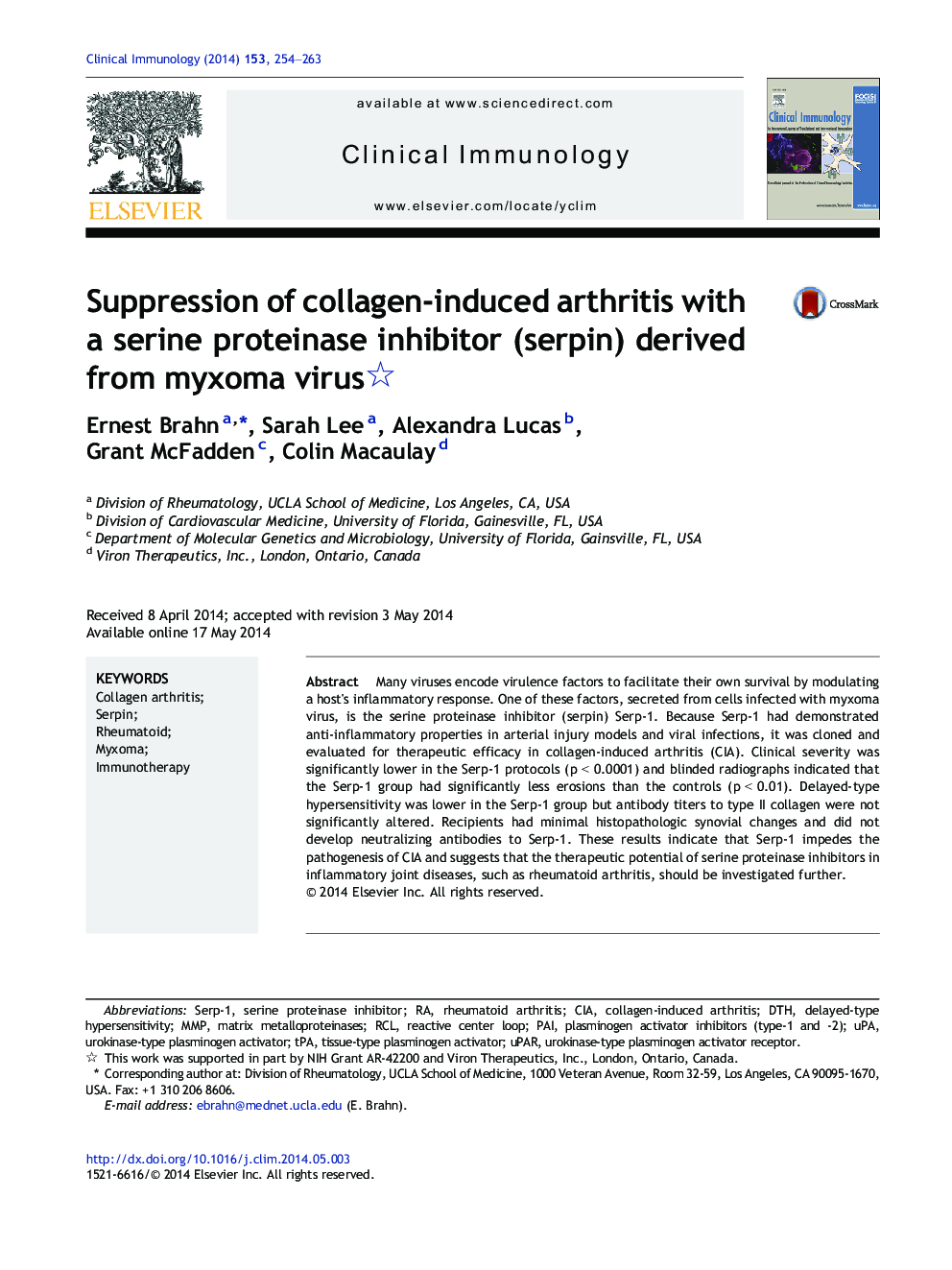| Article ID | Journal | Published Year | Pages | File Type |
|---|---|---|---|---|
| 3256844 | Clinical Immunology | 2014 | 10 Pages |
•Serp-1, a serine proteinase inhibitor, is an anti-inflammatory viral virulence factor.•In collagen-induced arthritis (CIA), Serp-1 decreased clinical and radiographic scores.•Histopathologic changes were inhibited by Serp-1.•Immunologically, DTH responses to collagen were lowered but not antibodies.•Serp-1, a virus-encoded protein, warrants additional studies in RA immunotherapy.
Many viruses encode virulence factors to facilitate their own survival by modulating a host's inflammatory response. One of these factors, secreted from cells infected with myxoma virus, is the serine proteinase inhibitor (serpin) Serp-1. Because Serp-1 had demonstrated anti-inflammatory properties in arterial injury models and viral infections, it was cloned and evaluated for therapeutic efficacy in collagen-induced arthritis (CIA). Clinical severity was significantly lower in the Serp-1 protocols (p < 0.0001) and blinded radiographs indicated that the Serp-1 group had significantly less erosions than the controls (p < 0.01). Delayed-type hypersensitivity was lower in the Serp-1 group but antibody titers to type II collagen were not significantly altered. Recipients had minimal histopathologic synovial changes and did not develop neutralizing antibodies to Serp-1. These results indicate that Serp-1 impedes the pathogenesis of CIA and suggests that the therapeutic potential of serine proteinase inhibitors in inflammatory joint diseases, such as rheumatoid arthritis, should be investigated further.
